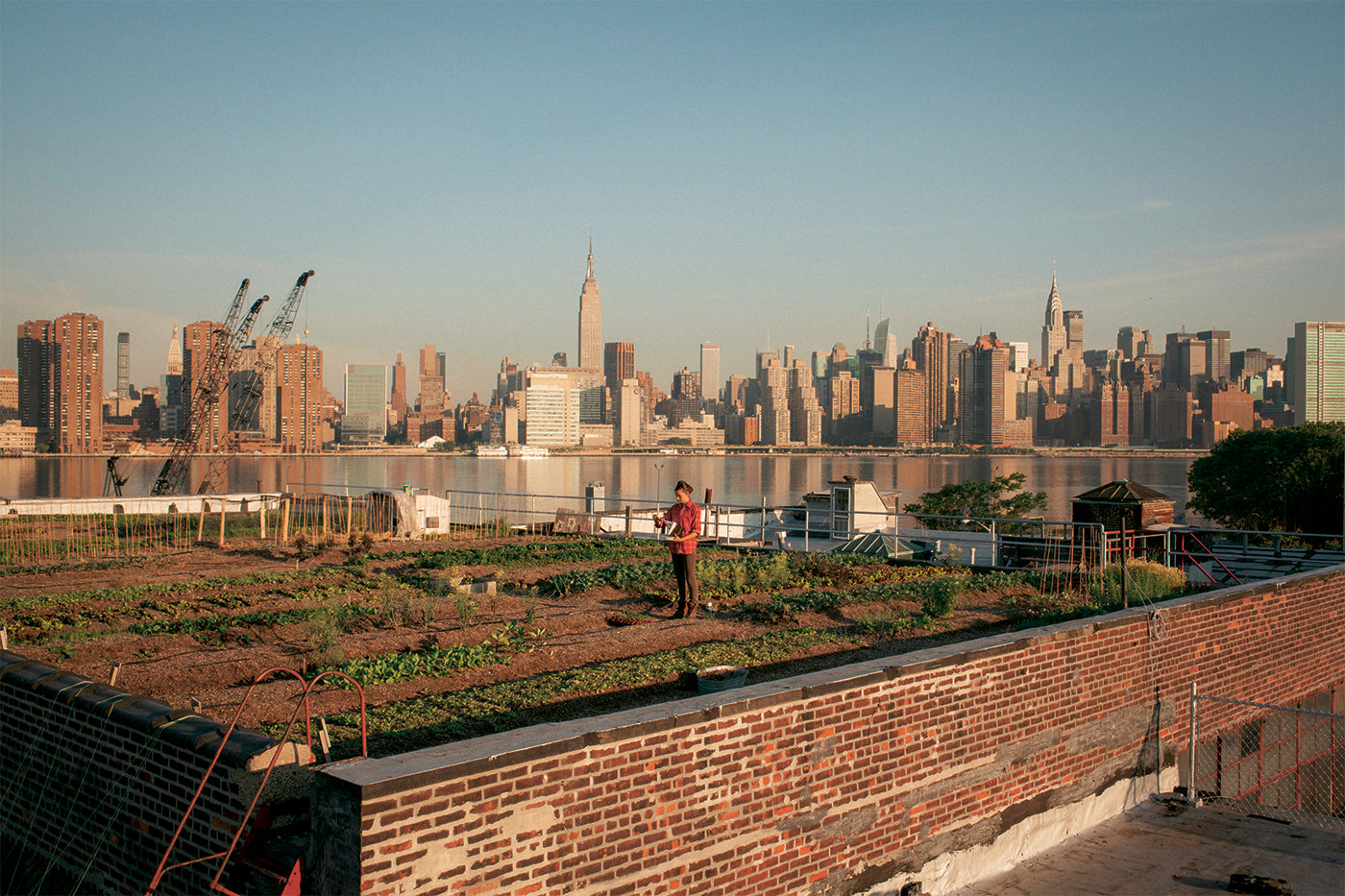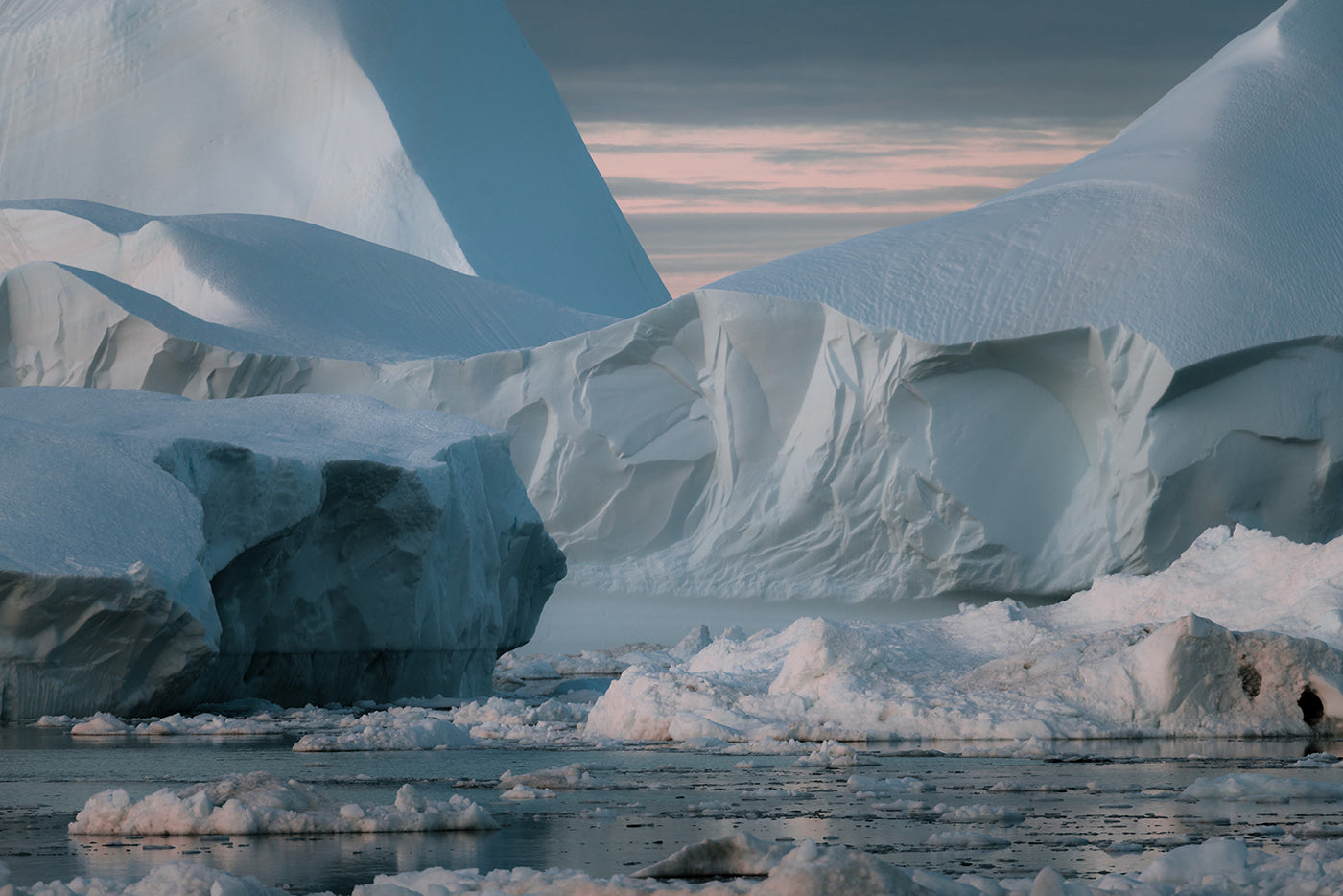
Silence Amongst Icebergs
Serenity in the Arctic
While sailing through the soundless Arctic panorama defined by millennia-old glaciers that rise like cold flames of ice from the clear, deep blue ocean erased all of the evidence of life beneath, a once in a lifetime sense of equanimity is felt. This feeling of isolation is what keeps Michael Schauer hooked, and why he keeps heading northward to the furthest corners of Earth.

Abstinence of the perfectly formed floating collection of ice, one slowly drifting away from the pack.
Silence in a vast openness, where light struggles to shriek ere the daybreak, his mind is hypnotized by the tough terrain around, detailing the scenery and any possible wildlife movement within sight. In an age of daily habits dominated by social media-driven algorithms and restless lifestyles frenzied by fast-paced societies, this contrasting escapism in the Arctic is what inspires the German explorer to continue visiting these remote enclaves.
Through his documentation we see a singular sheet of ice floating away from glacier lakes, a frozen ravine chewed through with a beam of sunlight illuminating like a Godly figure, and a humpback whale swimming alone through icebergs chequered amongst the still ocean. Fields of white ice sheets soar like tabletop mountains gauging over the surrounding area, reminding us this force of nature dwarfs that of mankind.
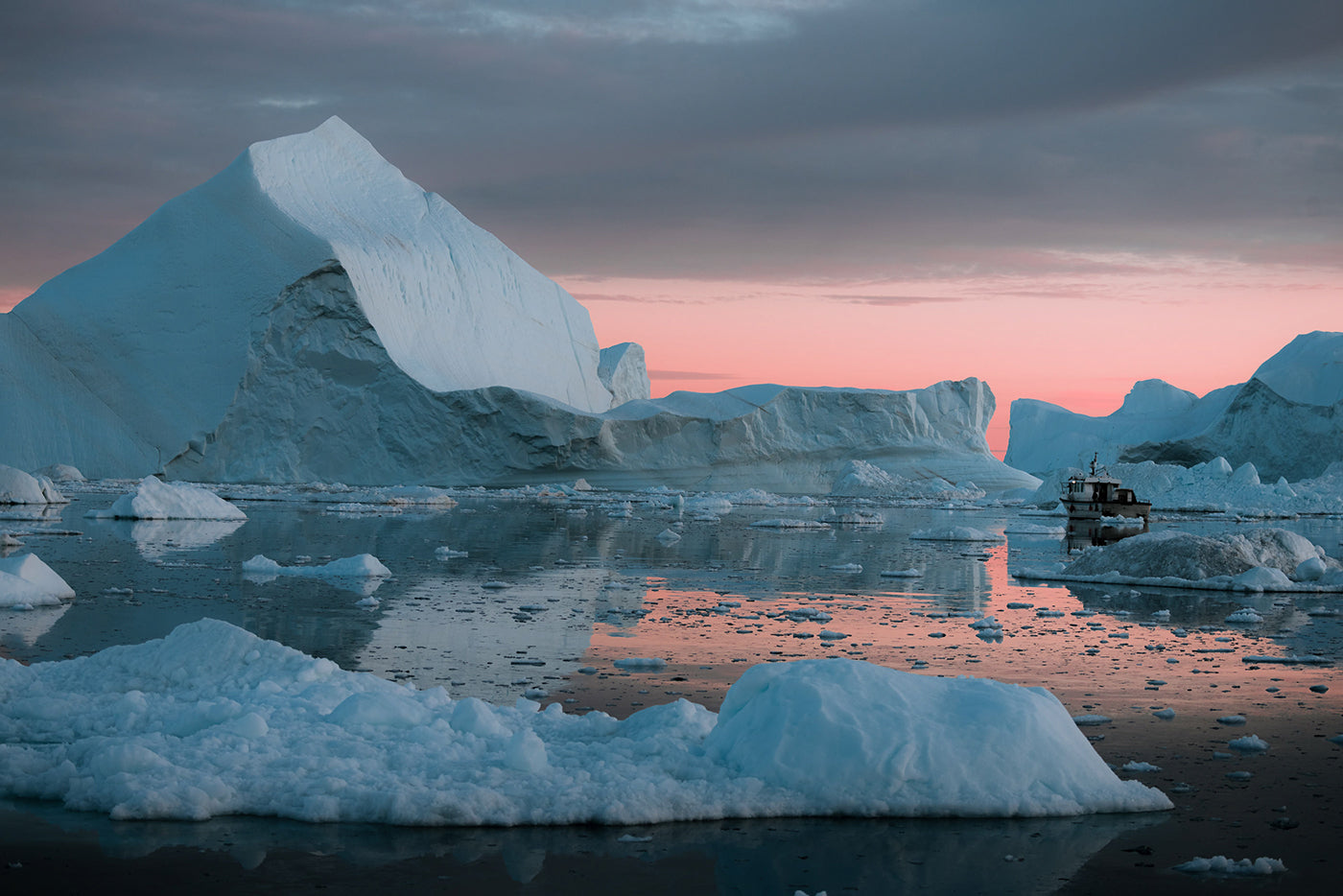
'I Still Feel It' was a series inspired by Michael Schauer wanting to experiment with pastel palettes over composition, exposure, and the mythical-like light of the Arctic.
While beautiful, it also shows how rapidly this part of the world is changing due to rising temperatures. The greenhouse gases collected in the atmosphere absorb sunlight and solar radiation that has bounced off the Earth’s surface, contributing to rising or unpredictable weather patterns. This edge of Earth is currently experiencing some of the biggest effects on its landscape and climate.
Schauer originally followed Sociology and Philosophy as a career path back in Munich, he didn’t discover photography until much later in life. Figures such as Olaf Otto Becker and Danila Tkachenko, as well as the directors Lars von Trier and Andrei Tarkovsky became influential to him while in his 20s. Today his time is divided between editing and voyages to the remote Arctic circle, often waiting days for the perfect atmosphere and moment to photograph. From his quest for silence to charting the methods used to save glaciers, Schauer invited us into his world.
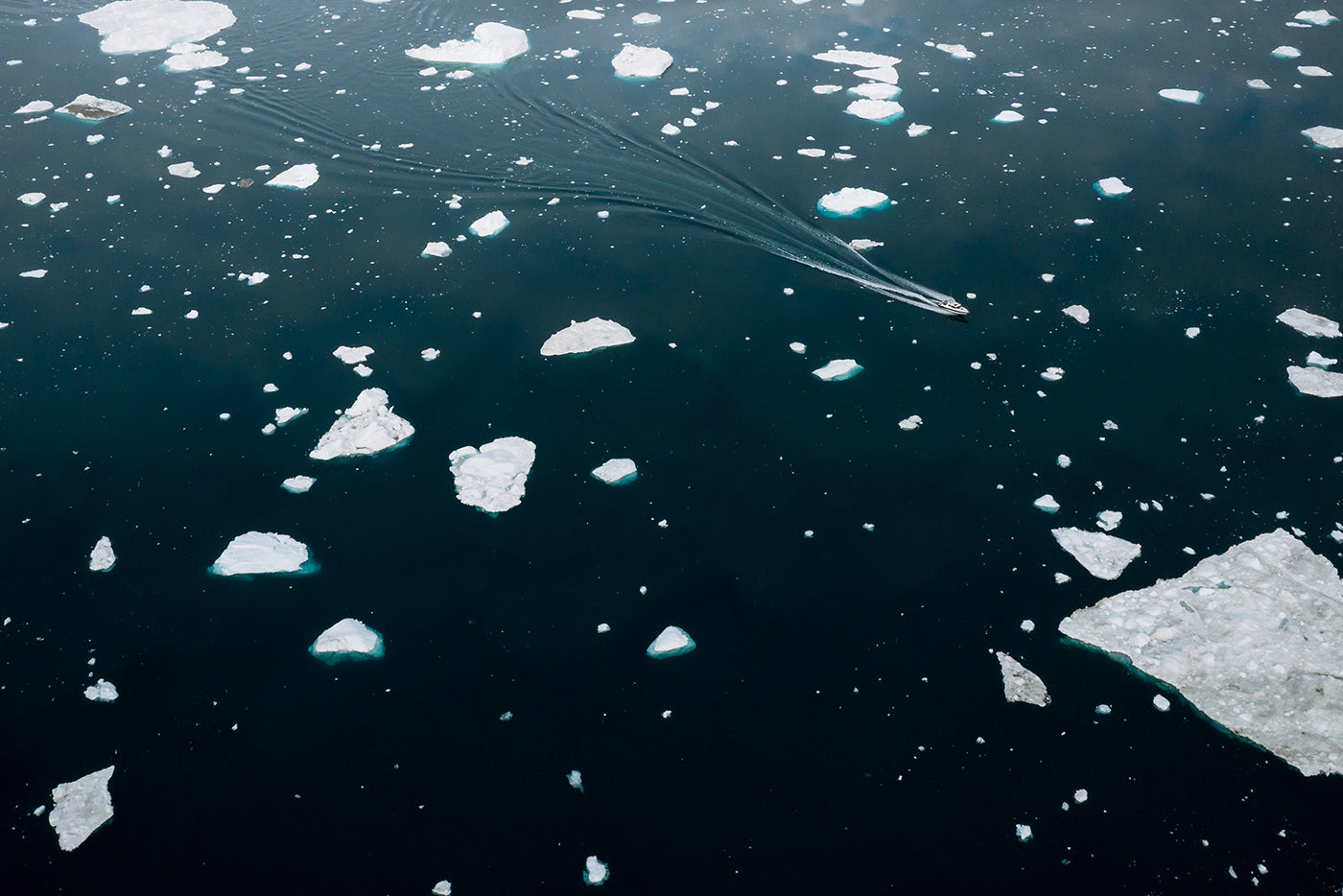
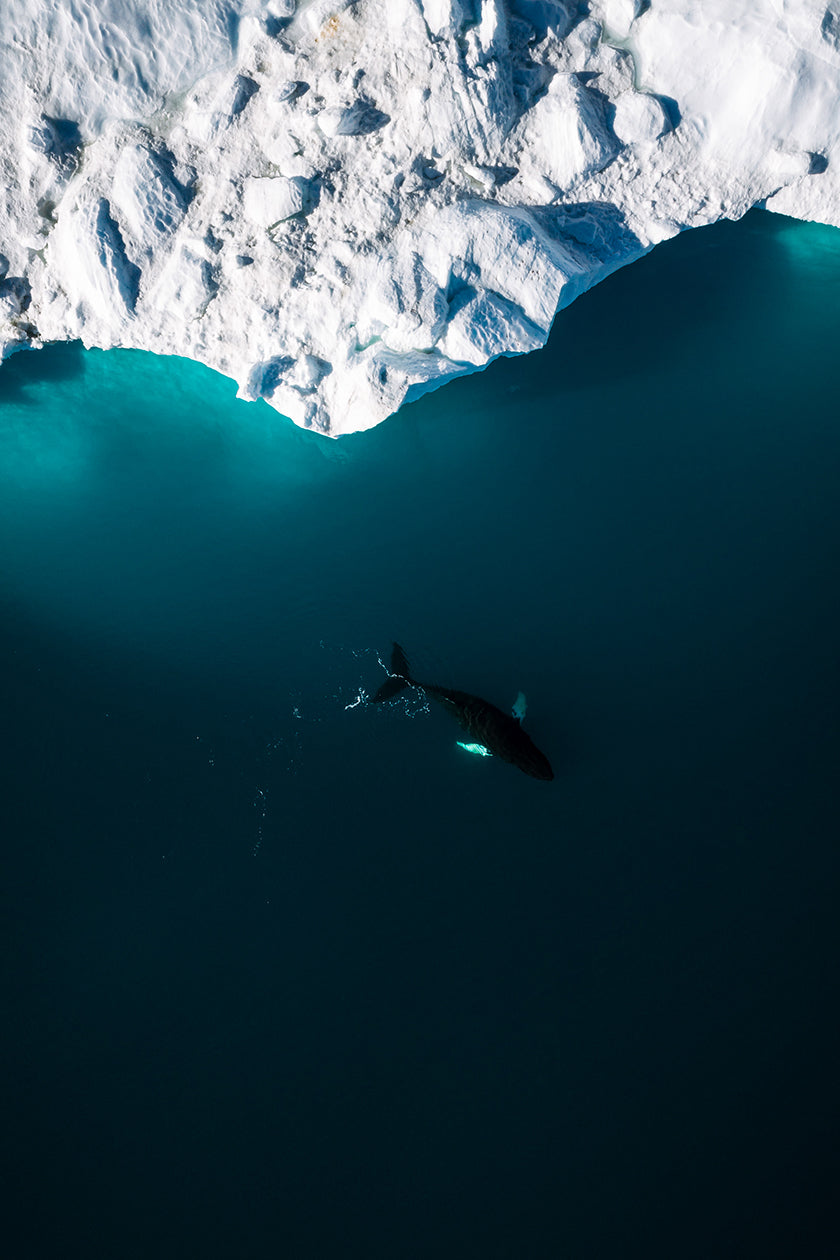
Two drone shots high above, one of a boat navigating icebergs like a field of landmines, the second a humpback whale swimming in the frozen, calm ocean.
Distancing yourself away from the fast-paced physical and digital world, then stepping into the silence. What is it about the Arctic and ocean that attracts you?
Besides silence, I often jokingly describe my body of work as ‘water in various states of aggregation,’ so yes, water is also a big topic in my work. What draws me to water is, perhaps, the sheer multitude of ways to capture it. You can shoot an iceberg and get very close to the ice to take a look at the structures. Even more so with a macro lens or a microscope. The same goes for liquid water where you can either shoot a calm body of water or raging waves beside a million other options that become apparent when you take the position of the sun into account. So it seems like a pretty pragmatic thing to shoot. To answer your question, in the Arctic and the oceans, there is just a whole lot of water.

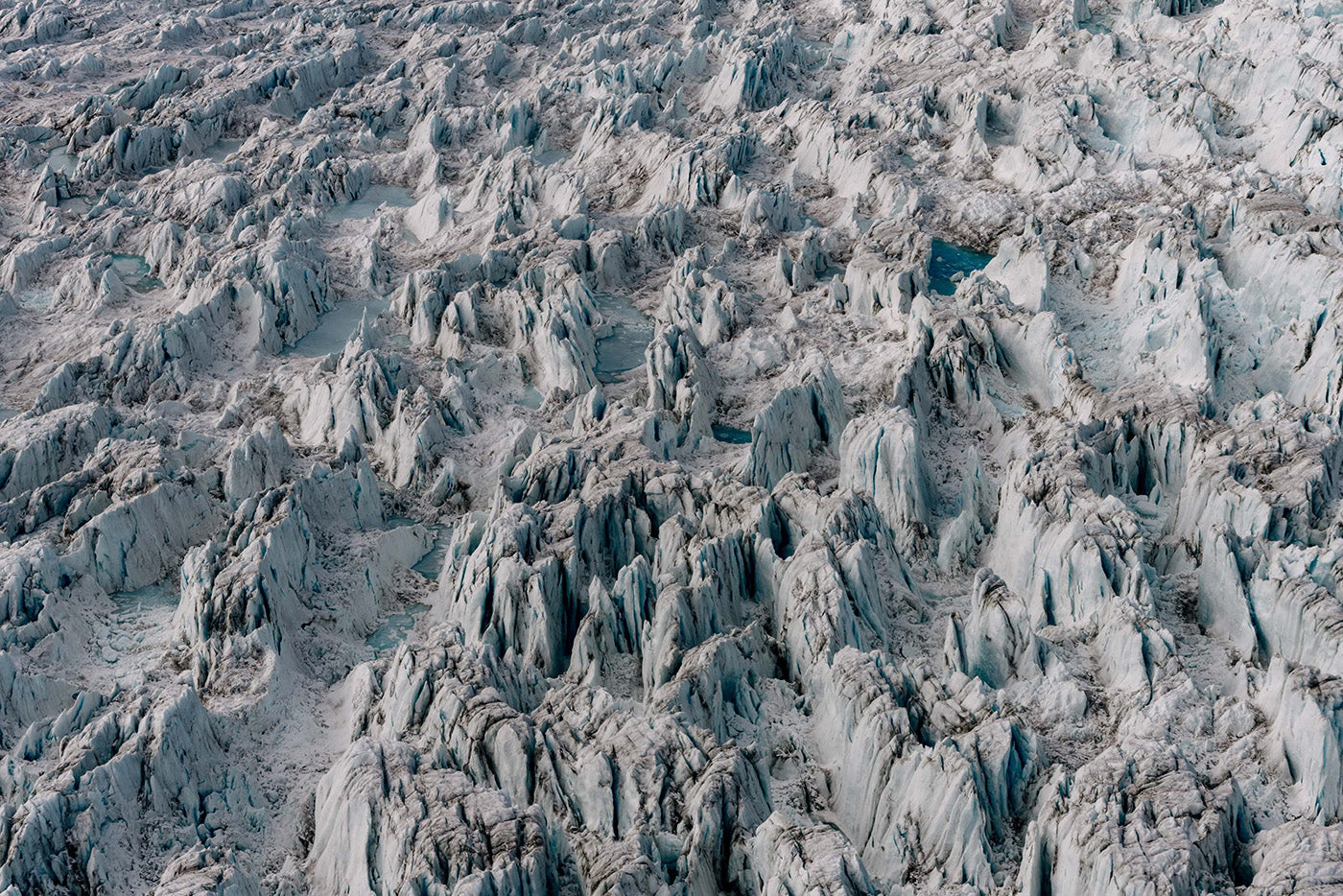
Massive crevasses making their way over the ice shield Greenland (top), and monoliths of ice rising on a titanic scale across a plain in Greenland.
What is running through your mind when you are on a boat, floating between icebergs and glaciers?
When I am on a boat slowly sailing between icebergs, beyond the initial excitement–I come from the south of Germany, we don’t have giant floating icebergs here–there comes an inner silence, a laser focus on the subject that blocks out all of the noise. There are only light and shapes and how I can compose the combination into a photograph. In this state of mind, I seem to lose track of time and body and it feels like my right arm gets a few kilos heavier since I just became one with my camera. Being out there at the ends of the Earth certainly is a very welcomed change of scenery, it almost allows you to wipe the slate clean. There is not so much to do up there when you’re a visitor, even with good internet and bad priorities, so you naturally get steered in the direction of calmness if you allow it.
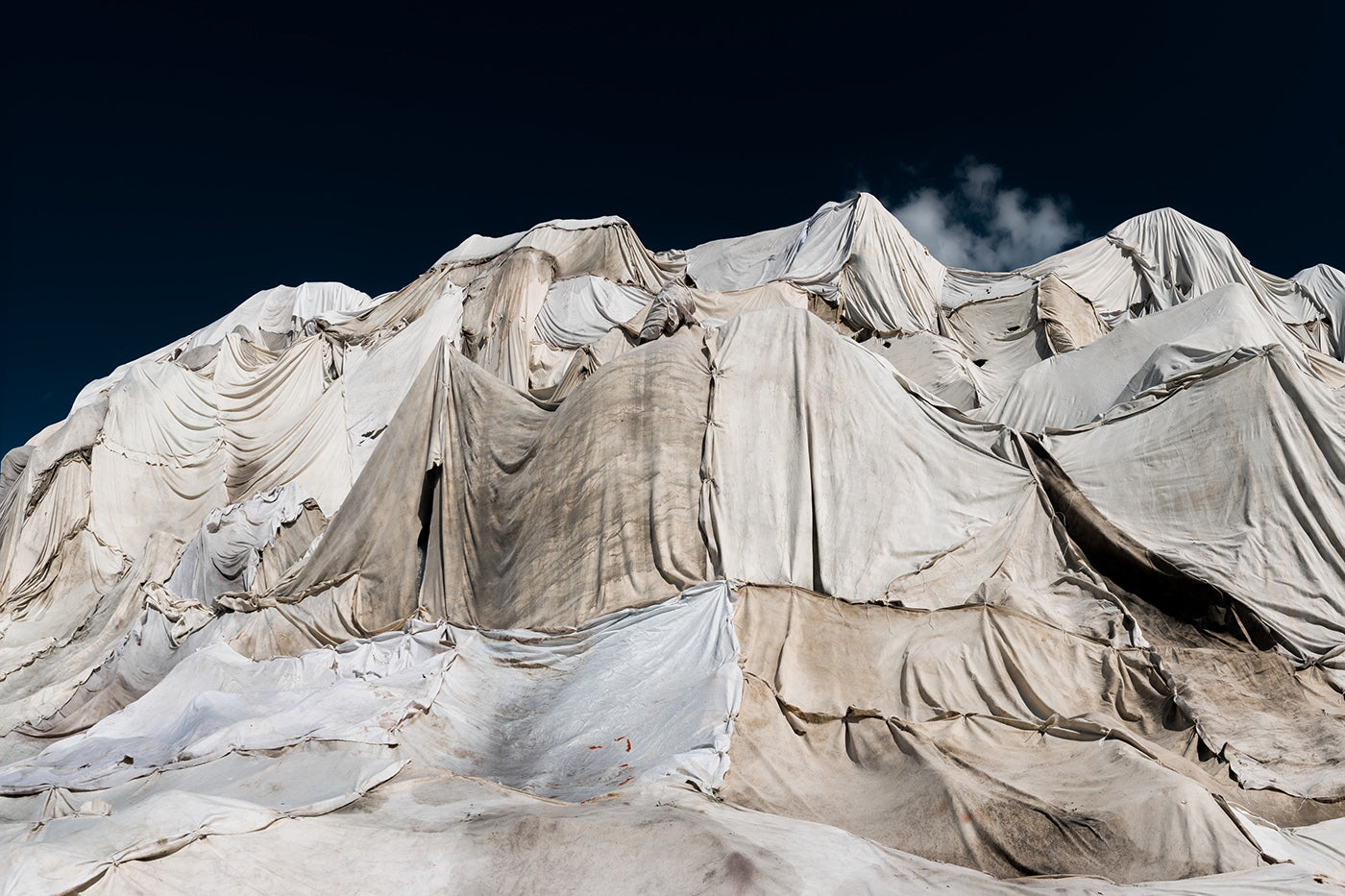
"The dying glacier's face is covered with a veil of white sheets," says Schauer of this age-old giant. In the summer this glacier melts twenty feet every three weeks because of accelerating global temperatures. Extreme measures are being introduced to combat climate change across the Arctic.
‘I Still Feel It’ captures intense Greenland in such beautiful intensity, what inspired this experiment and what challenges did you face?
‘I Still Feel It’ displays my first ever encounter with these massive icebergs of Disko Bay in Greenland. I was on a sunset tour and the light just got better and better until it was so absurdly good that it began to feel surreal and from a movie. I wanted to bring about this surreal feeling of joy, excitement and being overwhelmed by the pure beauty that was present that evening. What further inspired me was the release of the Pantone Color of the Year (2019), which was ‘Living Coral,’ so I steered the post-processing in this pastel coral-ish direction. The outcome is these candy-like mountains. The challenge certainly was to not shoot too many images to not only drain the battery of my camera as well as leave a bit of space on my SD cards in order to be prepared for a special occasion that might or might not happen.
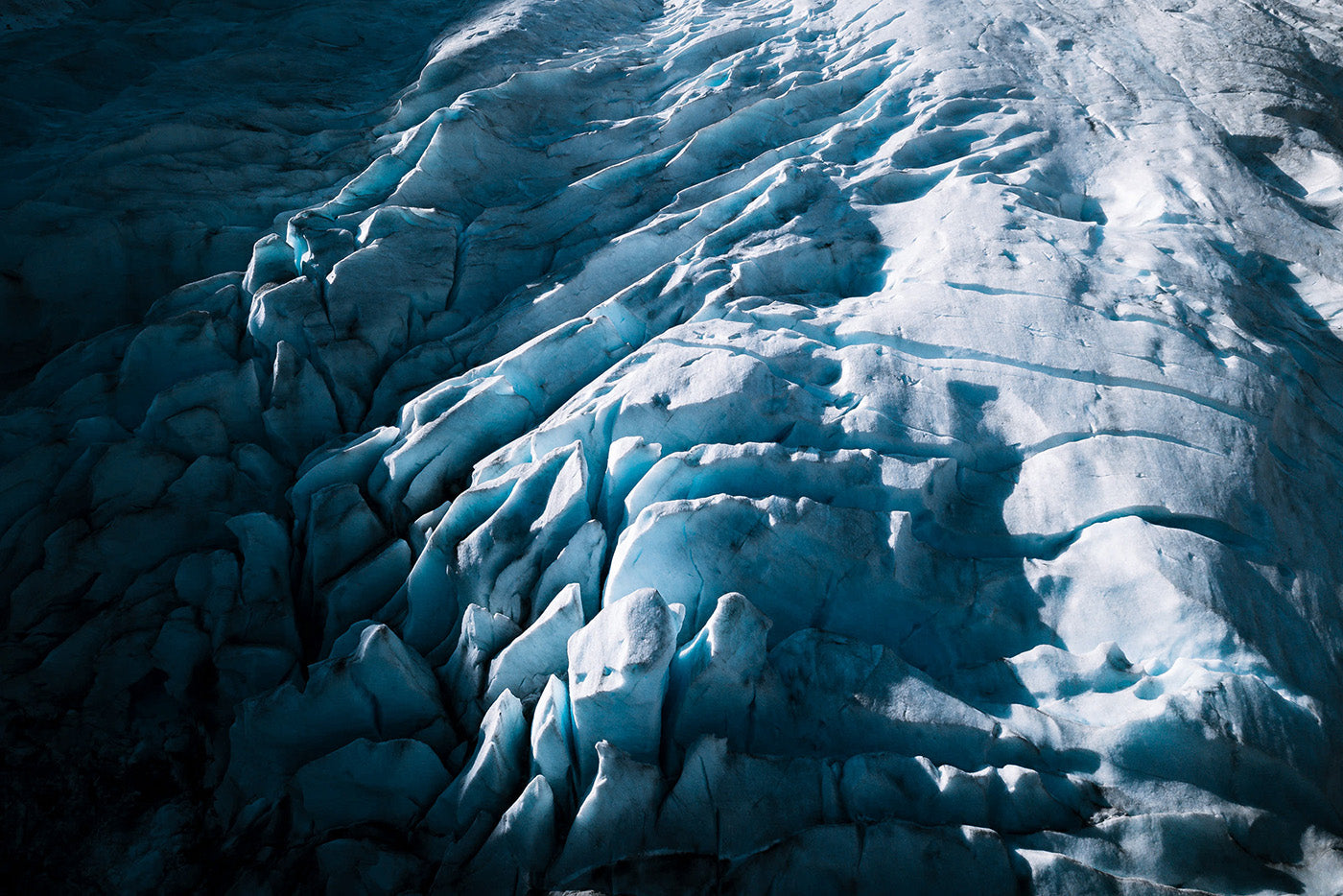
Schauer uses his photographic work as a medium to explore the human impact on nature and views it through an artistic, often minimalism-inspired viewpoint.
While surrounded by this beautiful chaos, do you ever think about global warming and mankind ticking closer to the hypothetical Doomsday Clock?
When I am at the very moment of taking pictures, I don’t. But before and after and while editing, I often try to take in the energy or the vibe of a place. When looking at glaciers you can pretty easily make out where they were when they were at their highest. The walls of glacial ravines are often very smooth because the wandering ice polished them to be as slick as a mirror, and then when the glacier is 40-50 meters below this point, I do get a sinking feeling in my gut and wonder how long we will be able to enjoy these silent giants. Sometimes there are pretty ingenious measures taken in order to slow this process down. For example, people lay out white canvases over parts of the glaciers to block out the sun in the summer. Which also makes for a chilling motive.
Discover a world of escapism through a selection of classic gestalten titles.


